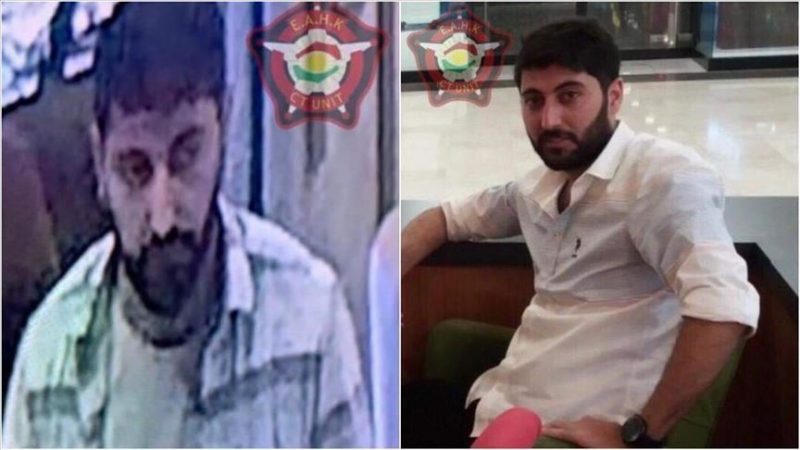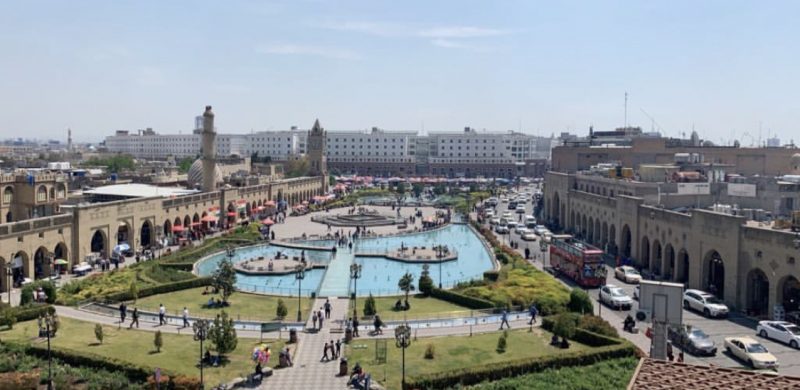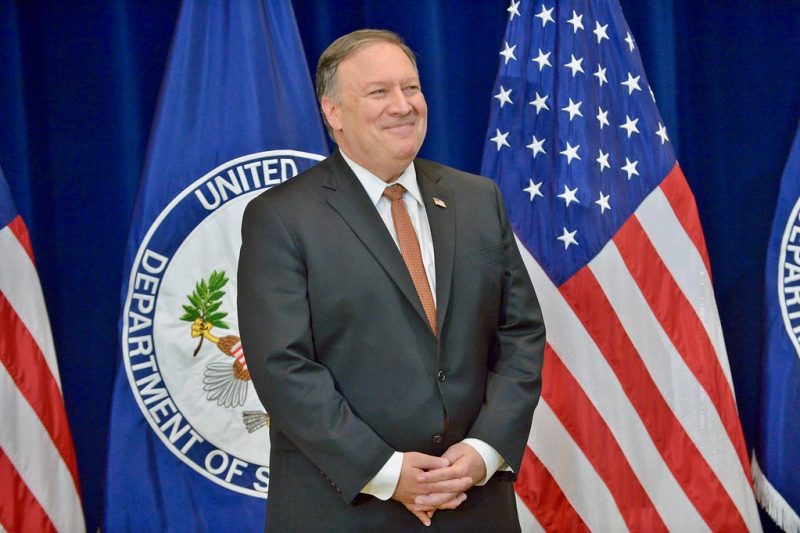In Erbil, the capital of Iraqi Kurdistan, an open terrorist attack against several diplomats was carried out. Three diplomats were killed as a result, including Osman Kose, an employee of the Turkish Consulate General. One of the two attackers was later identified as Mazlum Dag, a 27 year-old from Diyarbakir, Turkey.
According to Sky News – Arabia, two gunmen opened fire on diplomats in the afternoon at the HuQQabaz restaurant located in the western part of Erbil.

Turkey’s reaction
Ankara offered condolences to the families of the victims, and promised to find out who was behind the attacks.
“I condemn the heinous attack against those working our consulate in Erbil,” said Turkish President Recep Tayyip Erdogan.
Turkish Foreign Minister Mevlüt Cavuşoglu noted that apart from Kose, two Iraqis were also killed.
“We are in contact with both Baghdad and Erbil. We contacted and are contacting with Masrour [Barzani] and Nechirvan Barzani.”
The Kurdistan Regional Government also emphasized that they severely condemned the attack and promised to investigate and punish those responsible.
Situation in Erbil
Media reports point out that this is the first such attack on diplomats in Erbil.
Erbil is part of the Kurdish Region and has semi-autonomy status within Iraq. Kurdistan is crucial because of its vital location near the borders of Iran, Syria, Turkey and Iraq. Since the Kurds didn’t receive their own state after the First World War, they have been locked in a struggle for self-determination (in various forms) for decades. Oil is a key resource in Iraqi Kurdistan: the autonomous region has about one third of Iraq’s total oil reserves, most of which are located near the city of Kirkuk, which was once a stronghold of the Islamic State in Iraq and Syria. Of course, given such wealth, there are many states interested in controlling the territories.

Different versions of the story
While the investigation is still ongoing, there is strong suspicion that the PKK, a terrorist organization in Turkey, was involved. Cavusoglu was cautious in his statements, not accusing the group openly, only noting that the attack can be qualified as a terrorist attack.
Representatives from the PKK have denied involvement – a spokesman for the Peoples’ Protection Units, the armed wing for the PKK, Diyar Daneer, said that they “had nothing to do with the attack on Turkish diplomats,” and that the PKK “has no information about the attack.”
The PKK has fought against the Turkish state in the predominantly Kurdish area of southeastern Turkey since the 1980s, and more than 40,000 people have been killed in the course of the conflict.
As experts note, the murder of the Turkish diplomat occurred at a critical moment, just as Turkey announced that it plans to reopen its consulate in Mosul.
US’ Revenge?
While a PKK attack is the most logical explanation, another curious coincidence warrants attention: On the day of the attack, the United States announced Turkey’s expulsion from the F-35 program for purchasing the S-400 air defense system from Russia. Washington is undoubtedly trying to punish the wayward NATO member, despite the fact that the rules do not actually prohibit the purchase of weapons from countries outside the Alliance.
At the official level, of course, the United States expressed condolences: US Secretary of State Mike Pompeo called it an act of wanton violence, after which he added that the United States will continue to support both the people of Turkey and Iraq.
“The US reaffirms its commitment to support the government and people of Turkey and Iraq,”

However, some experts have pointed out that it is a rather strange coincidence. Some are already suggesting that the killing of the ambassador could have a negative impact on Turkish-American relations, which are on their last leg as it is.
Another interesting coincidence: in recent weeks, Turkey has conducted military operations against the US backed PKK in the Hakurk region in northern Iraq.
Although there is no clear evidence of the US’ networks having direct involvement in the attack, \Washington’s interest in provoking conflicts between Iraq and Turkey certainly remains a critical factor. The symbolic resonance is beyond a doubt: Turkey is a member of NATO, but it’s opposing the US is unacceptable, and now, it’s diplomat in Kurdistan is dead in an area where US influence is particularly strong.
It is worth remembering that the international Joint Operations Center is in Erbil, which is used by the US, Germany, France, Canada and the Netherlands. Since February 2015, the international airport in Erbil has actually become a USAF base.
The US is trying to play both sides – both in Iraq (in particular, Baghdad was allowed to take oil-rich Kirkuk in 2017), and Kurdistan, increasing its influence on all fronts. The idea of an independent Kurdistan is a pro-American and pro-Israeli project. Therefore, it is not surprising that American networks are active there.
Thus, no matter who the actual killers were (PKK, or other terrorists), the United States only stands to gain from the incident.

















Leave a Reply